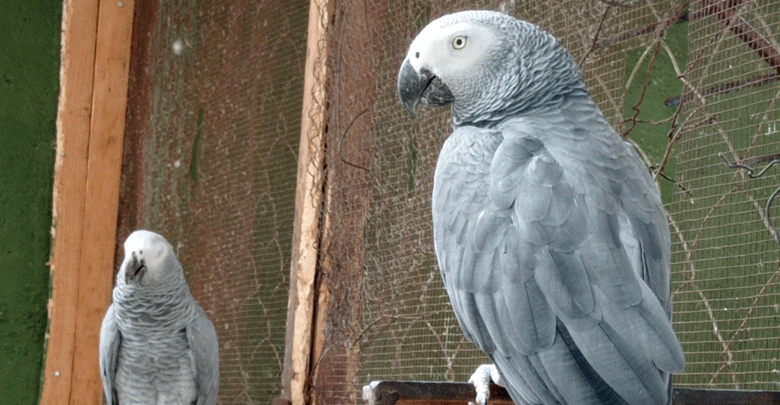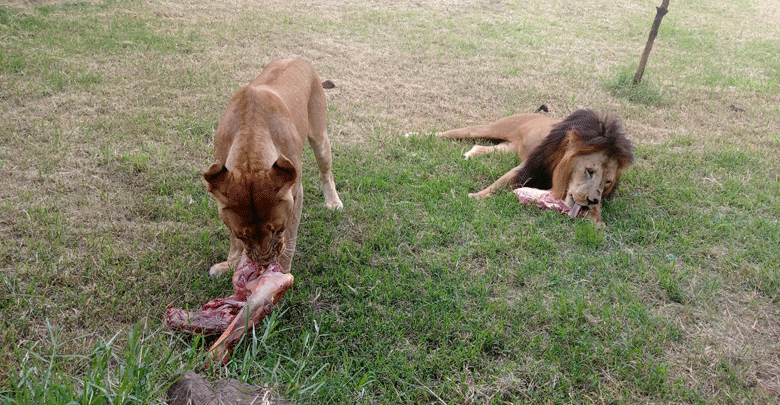Inside thriving illegal wildlife trade business
By Milliam Murigi, July 30, 2021Possessing a wild animal in Kenya is legal, according to the law. Despite misconceptions in the public, getting the licence to keep a wild animal requires permission from the authorities that protect wild animals in the county, and it comes at a fee after a due process outlined in the law.
The Wildlife Conservation and Management Act, 2013 allows Kenyans who meet the criteria set out in the law to possess wild animals.
However, it is illegal to be in possession of a wild animal that has been declared an endangered or threatened species, according to Section 92 of the Kenya Wildlife Act 2013.
Yet, despite the law being clear, wildlife trade for this species is still happening both physically and virtually.
A months-long investigation that started as a People Daily trial to ascertain how easy it is to acquire such species in Kenya has revealed a thriving illegal trade in these animals.
From Facebook to several other marketing platforms on the internet, such as Jiji.co.ke to different bird farms, various animals are displayed for sale, yet no action is taken against those selling those animals.
Our investigations found out that even Kenya Wildlife Services (KWS), which is supposed to protect the animals, has officials who contribute to the continued existence of this illegal activity.
Currently, there are more than 134,400 animals, birds and plants species on the International Union for Conservation of Nature (IUCN) Red List, with at least 37,400 species threatened with extinction, including 41 per cent of amphibians, 34 per cent of conifers, 33 per cent of reef-building corals, 26 per cent of mammals and 14 per cent of birds.
Trading legally
Our visit to one of the bird farms revealed how endangered/threatened birds are being traded illegally.
A farm that is licensed to sell birds by KWS hosts a considerable number of birds. But on checking their permit, we found only three species have been indicated to be available on this farm.
Our interest was piqued by the presence of Egyptian geese on this farm. This is a bird a listed on the red list of the IUCN, meaning it is an endangered species and should be protected. We posed as potential buyers of this specific bird and different people referred us to this farm.
According to the farm owner, the Egyptian goose is always not included in the permit because being an endangered species; it is not supposed to be traded. However, the owner has been permitted to sell the species by KWS.
According to the owner, every time he renews his permit, he pays for this species, despite it not being included in the physical permit.
“Every year, I pay Sh2,000 for the four species available on my farm. However, the permit reads three species and the whole amount. For every bird species, one pays Sh500 annually.
This has been happening all along,” says the owner, who sought anonymity to avoid possible retribution for making the revelations.

At the farm, a pair of the endangered bird, the Egyptian geese was going for Sh10,000. However, different sellers from different platforms were trading in it for between Sh13,000 to Sh15,000.
The most surprising thing is that none of the persons we contacted over the sale of the endangered bird demanded to know whether we had a permit from KWS or not. Each of them was interested in selling the bird.
Our efforts to get a comment from KWS were futile.
In IUCN Red List
On a visit to Stedmak Garden Animal Park, a private park that hosts more than 20 species of wild animals in the outskirts of Nairobi, we found African Lions and African grey parrots which have also been listed on the red list of the IUCN.
The difference between the two places is that at the park animals are for entertainment, so no one can buy any of those animals.
“We get most of these animals, except for the birds and snakes, from KWS. We don’t own the animals.
These animals belong to the KWS,” says Athumani Fenesi, the Park Manager.
The park owner, who requested not to be named so he could speak freely, added that for him to acquire those animals, he had to apply for a game ranching permit from the KWS.
This application is made to the Director of KWS through the nearest KWS regional office.
After application, the office sends a team of inspectors to the applicant’s farm to verify the facts as filled in the form and to establish whether the applicants meet the requirements for the enterprise.
If they are satisfied, the director forwards the form to the KWS headquarters in Nairobi for approval. Once approved, a licensing officer, usually a senior warden from the nearest KWS office issues the applicants with a license to practice game farming/ranching upon payment of Sh1,000 to Sh2,000 depending on the business.
“Apart from the application fees the applicant parts with some additional money for every species he/she would like to keep.
The amount ranges from Sh500 for birds to Sh100,000 for big animals. The license expires annually and must be renewed,” says the owner of the park.
According to the Wildlife Conservation and Management Act, 2013, the government allows one to possess wildlife for game farming, game ranching, live capture, research involving off-take, cropping, and culling. KWS is currently carrying out a census of all wild animals in the country for updated figures on the animal population.
The exact number of wild animals in wild game farms would only be available after the exercise was complete.
However, officials say not all wildlife, especially big animals can be held in captivity.
Young animals
Only the orphaned or abandoned young animals which cannot survive on their own in the wild, animals surrendered by pet keepers and animals forfeited or confiscated in the illegal trade, are held in captivity.
“I once tried to apply for an elephant but that has never materialised. Elephants are the hardest animals to possess.
The requirements for keeping them are way too much. For example, a single elephant is supposed to occupy not less than two acres’ piece of land.
Even if it is for business, this disqualifies a good number of potential possessors,” adds the park owner.
Once the application is approved, the applicant must wait until the animals are delivered to you by KWS, something which can take up to six months or more. This applies to the big animals only.
One can get the small animals from external sources either those licensed to sell the animals by KWS or those selling them illegally.
And to ensure that there is no breeding of wild animals, which is illegal, the females are usually sterilized before they are delivered.
Since acquiring all those animals is an expensive affair, the park owner says that he decided to complement the park business with a hotel business to ensure that the traffic to the park is constant.
On a good weekend, according to Fenesi, the park attracts between 60 to 100 people and each person pays Sh1,000 for adults and Sh500 for children.
“To ensure that our animals don’t starve, we feed them daily, but our lions and hyena are fed six days a week.
We have four lions that consume 10kg of meat each while the hyena consumes seven kilograms.
We skip one day because even in the wild not all hunts are successful and this is the required feeding practice,” adds Fenesi.
According to Kenya Wildlife Conservancies Association, having wild animals on private land is not new.
About 65 per cent of Kenya’s wildlife lives in the community and private lands.
This is because conservancies are a recognized land use under the Wildlife Act of 2013, allowing one to keep wild animals as a form of gainful land use.
It means that you can earn from them, provided that the wildlife is maintained in a healthy, natural and secure state and the land is suitable for that practice.
Though legalisation of wild animal possession is good on conservation grounds, according to Didi Wamukoya Senior Manager, Wildlife Law Enforcement at African Wildlife Foundation, one of the negative sides of possessing a wild animal, especially concerning live capture is potentially keeping the animals in poor conditions. This can happen especially if KWS does not carry out regular checks.
However, the best thing is once an inspection is done and the animals are found to be living in not a humane condition, the license can be revoked, and the animals reverted to the government.
For example, five years ago, KWS took possession of three lions and two cheetahs from the late Makueni Senator Mutula Kilonzo’s Kwa Kyelu Ranch because they were not being well fed.
In another incident, a baboon in Namanga was repossessed by KWS because the owner used to chain it contrary to the law.
Recently, Mamba Village in Nairobi was closed because of poor animal welfare, among other many cases issues.
To ensure that such animals don’t become an easy target for the black market, every person who owns a wild animal is expected to file a game farming quarterly return as a way of monitoring the animals. The report shows how many animals one has.
If they have sold or donated one indicates where and when this happened and to who. Reporting for this story was done with the support of Internews’ Earth Journalism Network.
